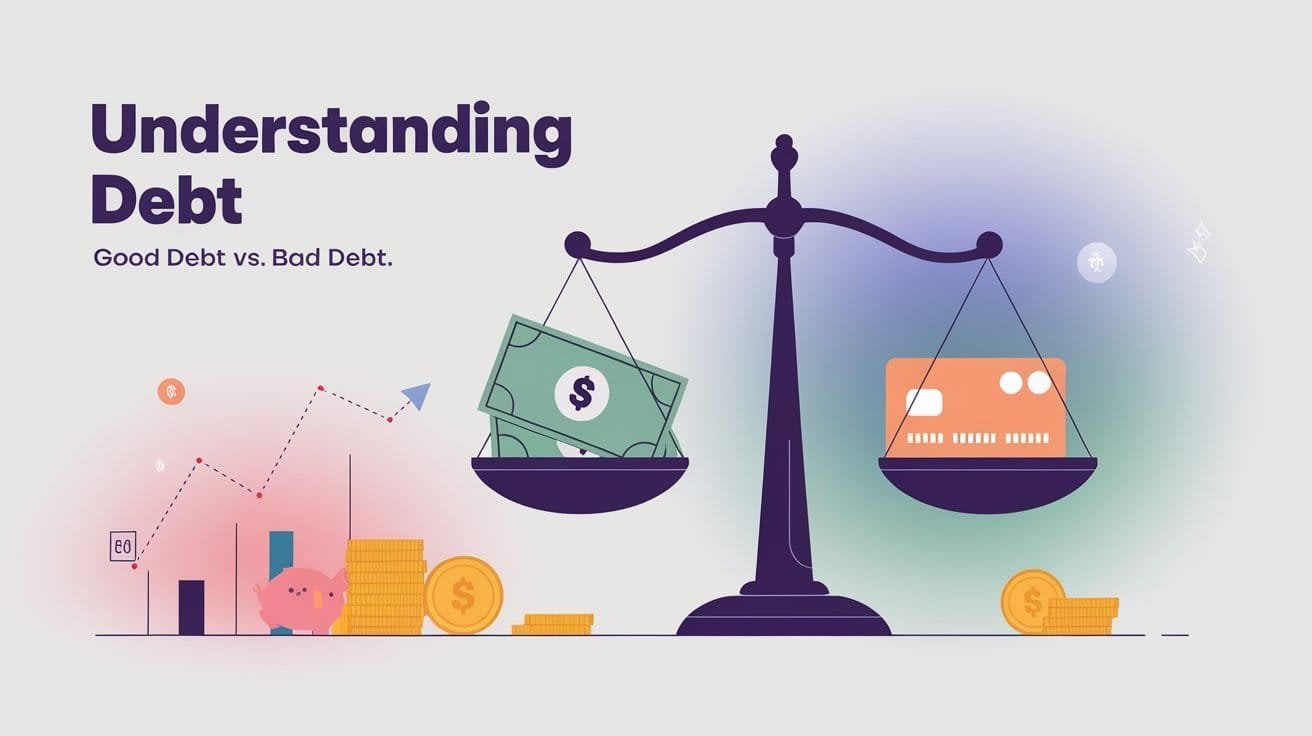Achieving financial freedom is a goal for many people, but it can often feel elusive. In this article, we’ll explore what financial freedom truly means and how you can take actionable steps toward it. Whether you’re just starting your financial journey or looking to refine your approach, understanding these key concepts will help guide you in the right direction.
What is Financial Freedom?
Financial freedom refers to the state of having enough income to cover your expenses without having to actively work for money. It means not being reliant on a paycheck to support your lifestyle and having the ability to make choices without financial constraints. This freedom allows individuals to focus on their passions, hobbies, family, or travel without worrying about earning a living each day.
For some, financial freedom might involve having enough savings and investments to retire early. For others, it might mean the flexibility to pursue part-time work or start a business without the pressure of covering basic living costs. The definition is personal and can vary based on individual goals and aspirations.
Why is Financial Freedom Important?
Financial freedom is important because it provides:
- Peace of mind: No longer having to stress about bills, debt, or living paycheck to paycheck.
- More time: The freedom to focus on what you love, whether it’s hobbies, family time, or simply taking a break.
- Flexibility: You have the option to choose your work, hobbies, or passions without being restricted by financial obligations.
- Security: Having a financial cushion means you’re prepared for emergencies and can maintain your standard of living without relying on external support.
Steps to Achieve Financial Freedom
Achieving financial freedom is a gradual process that involves both strategic planning and disciplined execution. Here are the essential steps to help you on your path:
1. Create a Budget and Track Your Spending
The first step towards financial freedom is understanding your cash flow. Track your monthly income and expenses to see where your money is going. Creating a budget helps you identify areas where you can cut back on unnecessary expenses and redirect funds into savings and investments.
Example:
If you’re spending $200 per month on dining out, consider reducing it by half and saving that extra $100 toward your financial goals.
2. Eliminate High-Interest Debt
High-interest debts, like credit card balances, can hinder your financial progress. Paying off these debts should be a priority because they can quickly spiral out of control with high interest rates.
Start by paying off the debt with the highest interest rate first, a method known as the debt avalanche. Alternatively, you could use the debt snowball method, where you pay off the smallest debt first and build momentum.
3. Build an Emergency Fund
An emergency fund is a critical safety net that ensures you’re not derailed by unexpected expenses like car repairs or medical bills. Aim to save at least three to six months’ worth of living expenses in an easily accessible account. This gives you peace of mind knowing you’re prepared for the unexpected.
4. Invest in Your Future
Saving money alone is not enough to achieve financial freedom—you must also invest it to grow over time. Consider low-cost index funds, stocks, bonds, or real estate investments. The earlier you start, the more time your money has to compound.
Tip:
The power of compound interest is one of the key drivers behind wealth accumulation. Even small investments made early in life can lead to significant growth over time. For instance, investing $5,000 annually with an average return of 7% could grow to over $1 million in 30 years.
5. Increase Your Income
While saving money is essential, increasing your income can speed up your journey to financial freedom. Consider ways to earn more money through:
- Side gigs: Freelancing, tutoring, or even pet sitting.
- Upgrading your skills: Acquiring new certifications or learning in-demand skills can increase your earning potential.
- Passive income: Earning money through investments, renting out property, or creating digital products that generate ongoing revenue.
6. Live Below Your Means
Living below your means is an essential principle of financial freedom. Avoid lifestyle inflation, where increased income leads to increased spending. Instead, focus on saving and investing a large portion of your income, no matter how much you earn.
Example: If you get a raise at work, resist the temptation to increase your spending. Instead, use that extra income to save or invest further, accelerating your progress toward financial freedom.
Staying on Track
Achieving financial freedom doesn’t happen overnight, but with persistence and a clear plan, it’s within reach. Keep reviewing your goals, track your progress, and make adjustments as necessary. Celebrate your wins, whether big or small, and stay motivated by visualizing the lifestyle you want to achieve.
Key Takeaways
- Financial freedom means having the ability to live without relying on a paycheck, giving you more control over your time and choices.
- To achieve it, start by creating a budget, eliminating debt, building an emergency fund, and investing for the future.
- Increasing your income and maintaining a lifestyle below your means can accelerate the process.
By following these steps and staying disciplined, you’ll be well on your way to achieving the financial freedom that aligns with your goals and values.






